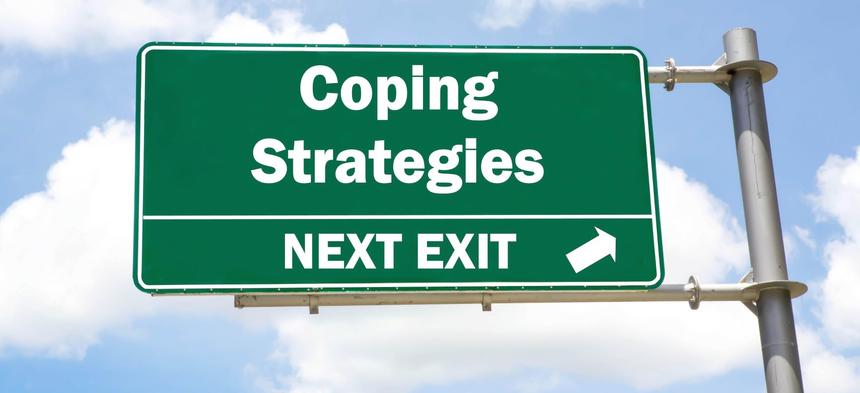Ten Tips to Help Parents of Children With Food Allergies Navigate Stress and Anxiety
Caring for your child with food allergies can feel overwhelming. Here are some useful strategies for taking care of yourself as well.

Guest post by Paige Freeman, PhD

Paige L. Freeman, PhD, PLLC, is a psychologist who has navigated her child's food allergy for the last 14 years. She provides telehealth services in 20 states to support others managing food allergies. To learn more, visit paigefreemanphd.com.
If you are the parent of a child with a food allergy, you are experiencing a chronic life stressor that can be an enormous mental and emotional load to navigate day in and day out. If you are parenting a child with multiple food allergies, have more than one child with food allergies, are prone to anxiety or depression, or have other additional chronic stressors, your challenges are compounded.
A 2019 Asthma and Allergy Foundation of America study found that 75 percent of parents of children with food allergies surveyed said their child’s food allergy causes them fear and anxiety and 82 percent of parents indicated that they think about food allergies all of the time. The study additionally found that the emotional impact of food allergies is greater on parents than it is on their children ages 13 and older with food allergies.
So how do you cope with this chronic stress? The 10 tips below are in no way comprehensive but may give you some good places to start.
- Build a support system with other food allergy parents through support groups, including those on social media. You aren’t alone on this journey, and many other parents are going through at least some of the same issues as you. The camaraderie you feel with a group of people that are experiencing at least some of the same things you are can be incredibly validating and healing. Click here to find a FARE-Recognized Support Group.
- If you do join a support group, make sure you monitor your emotions while in the group. Some groups may not be a good fit and may heighten your anxiety. If you feel your anxiety consistently rising while in the group, you may want to find a different one. There are so many wonderfully supportive and informative groups out there. Keep trying!
- Give yourself mini-breaks from worrying about the food allergy to shore up your emotional reserves. Go out and experience things by yourself or with family or friends that you enjoy but are unable to do with your child who has food allergies. Going to a favorite restaurant, a street fair, or a farmer’s market are some examples, but tailor your experience to what you enjoy. Consult with your allergist to see if there are any precautions that need to be taken before you return home.
- From time to time, flexibly rework the family system into smaller parts for outings and activities that incorporate different mixtures of family members. This can allow non-allergic family members to have a wider breadth of experiences, while allowing the entire family some special individualized time with each other. Again, consult with your allergist to see if there are any precautions that need to be taken before your return.
- If you are getting stuck worrying about the “what ifs?” that go beyond sufficient plans to keep your child safe, consider shifting your focus to “even ifs.” An emphasis on what actions you will take in the event of a reaction will increase your faith in your ability to execute your allergy plan. Practice the administration of epinephrine with an epinephrine trainer until it becomes familiar and natural. If you are unsure of what different allergic symptoms warrant which treatment(s) and response, schedule an appointment or call with your allergist. Have a list of specific questions ready for them if you need for them to clarify anything at all about what actions you should take in the event of a reaction.
- If your child has a reaction because of something that slipped by you, be kind to yourself. The degree of vigilance required of food allergy parents is an extraordinarily high bar, and unfortunately it is likely that at some time, some allergens are going to slip through. Give yourself the same empathy, forgiveness and understanding that you would give a friend.
- Set clear boundaries with family and friends. If your friends or family members hold very different ideas about food allergy precautions than you do, consider interacting with them in non-food-based situations if possible.
- Think about what your parenting values are and remind yourself of these when you are stressed. When you are in a situation that is chronically stressful, acting in a way that is consistent with your values can actually reduce your anxiety.
- Look into mindfulness. Mindfulness is a purposeful activity that involves becoming explicitly and non-judgmentally aware of your emotions, thoughts, body sensations and the environment. It allows you to make room for your emotions instead of avoiding them, which enables you to free up some energy to do what matters to you.
- If despite your best efforts, you are experiencing a degree of anxiety that is significantly interfering with your life, it may be time to talk to a food-allergy-informed therapist. Click here to see if therapy may be the right choice for you
If you're looking for an allergy-informed therapist in your area or state, visit the Food Allergy Counselor Directory, which has a growing list of therapists ready to help you.
While FARE does not endorse products, we support and appreciate enterprises and organizations that are committed to serving the food allergy community.


